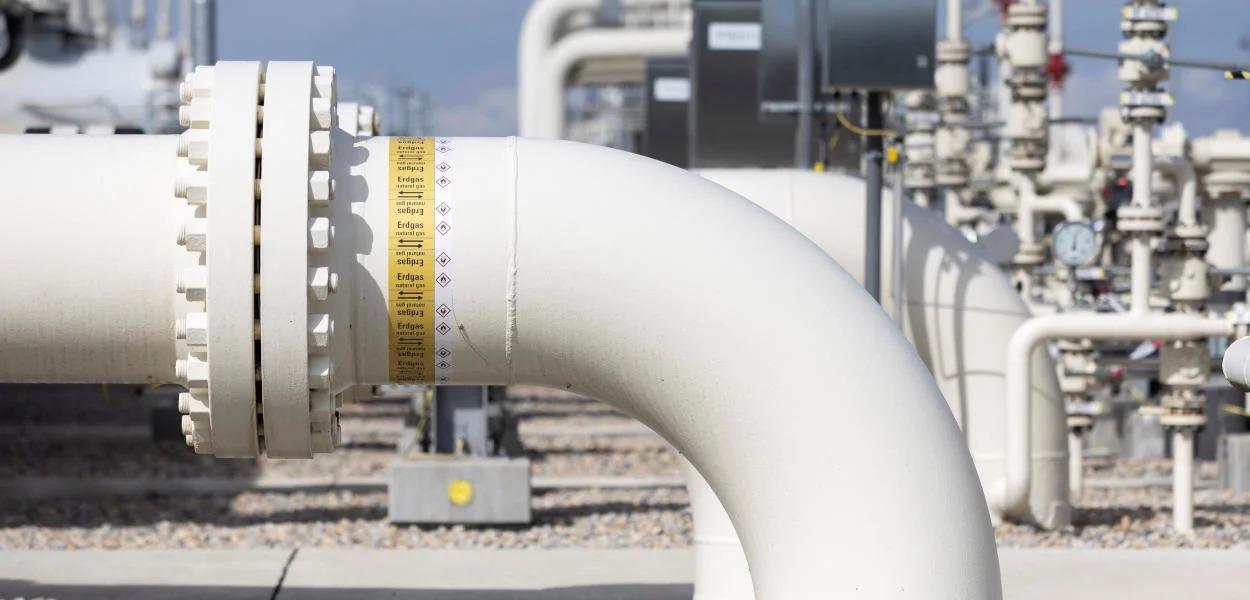When Speaker Kevin McCarthy visited a natural gas drilling site in northeast Ohio to promote House Republicans’ plan to sharply increase national fossil fuel production last month, signs of rising global temperatures could not be ignored. Smoke from Canadian wildfires hung in the air.
When the speaker was asked about climate change and wildfires, he was ready to answer: plant a trillion trees.
The idea – simple but hugely ambitious – exposed recent Republican thinking about how to deal with climate change. The party no longer denies the existence of global warming, but seeks a response to sweltering summers, weather disasters and rising sea levels that does not involve abandoning its enthusiastic support for state-generated energy. United from burning oil, coal and gas.
“We need to manage our forests better so that our environment is stronger,” McCarthy said, adding, “Let’s replace Russian natural gas with American natural gas and not only have a cleaner world, but a safer world.”
The Biden administration also increased exports of liquefied natural gas to Europe after Russia, one of the continent’s biggest energy suppliers, invaded Ukraine. The Democratic president also said that coal, oil and gas will be part of America’s energy supply for years to come.
Scientists overwhelmingly agree that heat-trapping gases released by burning fossil fuels are raising global temperatures, changing weather patterns around the world, and endangering animal species. But the solution long championed by Democrats and environmental advocates — government action to force through emissions cuts — remains a failure for most Republicans.
Enter the idea of planting a trillion trees. A 2019 study suggested that planting trees to suck carbon dioxide from the atmosphere could be one of the most effective ways to fight climate change. Major conservation groups and former President Donald Trump, who have downplayed humanity’s role in climate change, have embraced the idea.
But the drive to plant trees has drawn intense resistance from environmental scientists who see it as a distraction from reducing fossil fuel emissions. The authors of the original study also clarified that planting trees does not eliminate “the urgent need to reduce greenhouse gas emissions.”
Planting a trillion trees would also require an enormous amount of space – roughly the size of the continental United States. And more trees could even increase the risk of wildfires, serving as fuel in a warming world.
“There’s a lot of value in planting trees, but it’s not a panacea,” said Mark Ashton, professor of forest ecology at the Yale School of Forestry and Environmental Studies.
The GOP’s new approach to climate came in 2021. McCarthy and other GOP lawmakers, led by Arkansas Rep. Bruce Westerman, backed a bill to encourage the cultivation of hardwood forests in the United States as part of a global effort to plant 1 trillion trees. Westerman said he hopes a similar proposal comes forward this year.
For Republicans, the bill ticks all the right boxes. He is pro-forestry and promotes a climate fix — sequestering a huge amount of carbon from man-made emissions — that would also partly reduce the need to move the country away from fossil fuels.
Now that he has a slim majority in the House, McCarthy has also pushed to expand power generation. He made the “Lower Energy Costs Act” the top legislative priority for the new GOP majority, as reflected in his bill number – HR 1. The bill, which passed the House in a largely partisan vote in March, it would boost US energy production. , including oil, gas and coal.
Democrats like President Joe Biden dismissed the bill as a “veiled license to pollute,” but Republicans argued it would cut carbon emissions because fossil fuels produced in the United States are generally cleaner than those produced abroad.
“What we were able to demonstrate at the Republican conference is that the strategies that really work are the ones that really increase America’s resources,” said Louisiana Rep. Garrett Graves, a top adviser. of McCarthy on energy and environmental issues. “It lowers energy prices, reduces emissions and makes us more energy independent.”
The energy legislation would also increase the production of critical minerals such as lithium, used in batteries for electric vehicles, computers and cellphones – a priority shared by Biden. House Republicans and many Democrats have also introduced proposals to speed up licensing of energy projects of all kinds, including “clean energy” ones like wind, solar and geothermal.
“I keep reminding Republicans that HR 1 made energy affordable, reliable and clean,” said Utah Rep. John Curtis, who has become a leading Republican voice on environmental issues. “We are very quick to point out that this has made it accessible and reliable. Sometimes we forget to remind people: yes, and clean. This is an important part.
But not all Republicans agree that climate change needs to be tackled. Rep. Scott Perry, who leads the far-right House Freedom Caucus, in a hearing on Thursday alleged that the Biden administration’s climate agenda addresses “a problem that doesn’t exist.”
Perry went on to state – without proof – that world leaders who push to cut carbon dioxide emissions are “gritty”.
Almost generally, House Republicans have tried to undo parts of Biden’s climate agenda, deriding them as expensive and cumbersome. They targeted government incentives for clean energy projects and denounced investment strategies that consider environmental impact. Last week, they moved to block the Department of Defense from using funds to implement presidential climate decrees.
“You see the recognition within the Republican Party that climate change is something that they’re going to have to at least acknowledge because their constituents are dealing with it on a daily basis and it’s having a growing economic impact,” said Lena Moffit, executive. . director of Evergreen Action, an environmental group that encourages urgent action. “But you can’t say you’re putting out the house fire while pouring more gasoline on it.”
Still, Curtis said he’s seen an eagerness from Republicans to get involved on the issue since he launched the Conservative climate caucus two years ago. The group has grown to 84 Republicans, representing more than a third of the GOP conference.
Curtis said he decided to start the caucus after struggling to respond when asked about climate change by voters in Utah, where he represents a district marked by ski resorts and National parks.
“I saw a lot of these young people coming to town halls and seeing the disappointment in their eyes when I didn’t have a good answer for them,” Curtis said. “I felt that in many ways we were losing a generation of Republicans on this issue.”

“Prone to fits of apathy. Beer evangelist. Incurable coffeeaholic. Internet expert.”







